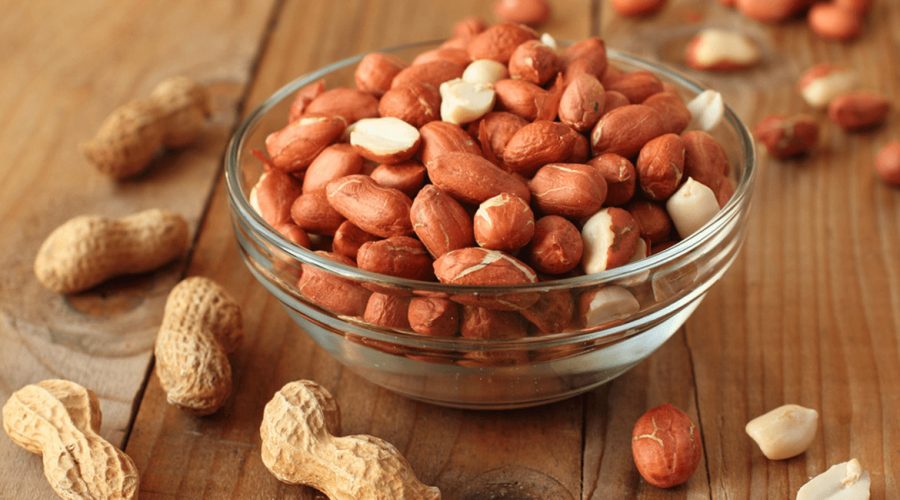Peanuts are one of the natural foods that people like. These dried fruits can be eaten either as a snack or incorporated in different recipes of Oriental and Mediterranean foods. They are also used in healthy salads in fried or roasted form. The Nutrition value of peanuts is great, it has more protein and fat content than meat and eggs. Hence, in some nutritionists call it “plant meat.” Peanuts also have some medicinal value and healthcare properties, so they are called “longevity fruit” by the ancients.
Peanuts also contain a lot of fat, the most fat is the content of oleic acid, followed by linoleic acid and palmitic acid. In addition to fat, peanuts are also rich in protein, vitamins, and minerals, including; vitamin B1, B2, B6 & E, with high contents of potassium, iron, magnesium, zinc. It also contains a lot of polyphenols resveratrol. All these nutrients make peanuts a valuable natural produce.
Nearly half the proportion of unsaturated fatty acids is oleic acid. Oleic acid lowers total cholesterol and low-density lipoprotein cholesterol in the blood and slightly increases high-density lipoprotein cholesterol. With the role of sterols in vegetable oil, for the regulation of blood cholesterol have a good effect. In addition, oleic acid is the most stable fatty acid in unsaturated fatty acids, it is not easily oxidized into a foreign matter in the blood, which is very good for prevention and treatment of atherosclerosis and prevention of cardiovascular diseases.
Peanuts contain a variety of proteins, eight kinds of essential amino acids in addition to a small amount of lysine, the other several amino acids are very rich. Proteins are part of the internal organs and muscles and are indispensable to life.
Peanut is rich in B vitamins, including niacin to reduce very low-density lipoprotein (VLDL), controls low-density lipoprotein (LDL) production, inhibition of fat hydrolysis, reduce plasma levels of free fatty acids, improve blood circulation and prevent fat Liver and enhances insulin function. Folic acid in peanuts is also present in a bigger quantity which has the effect of preventing neonatal malformations. Choline in peanuts and lecithin, saponin, etc. can promote fat metabolism, the treatment, and prevention of fatty liver.
Vitamin E in peanuts helps blood circulation, prevents aging, improves memory, improves delayed brain function and moisturizes skin.
Peanut also contains highly bio-active polyphenols – resveratrol, this substance has the effect of reducing platelet aggregation, prevention, and treatment of atherosclerosis, cardiovascular and cerebrovascular diseases; In addition, this substance is an anti-cancer expert.
In addition, peanuts are also suitable for sick emptiness, recovery of diabetic patients, women during pregnancy and postpartum eating, peanuts have a good effect of nourishing in all these situations.
Because peanut is one of the most important oil crops, some doctors and nutritionists pay attention to the fat and calories in peanuts and calculate that 15 peanuts equal 10 grams of oil, emphasizing that peanut has the function of increasing fertilizer. According to the author for Online assignment help UK, one-sided attention to peanuts for its fat and calories, while ignoring the comprehensive nutrition of peanut is wrong. In expert nutritionist’s point of view, people who eat peanuts are not necessarily obese, but not those who eat peanuts may not be thin. One of the reasons may be related to the amount of consumption. Another reason is that eating peanuts will reduce animal food intake like; eggs and meat, while also slowing down the absorption of carbohydrates to minimize the causes of obesity. Therefore, if properly incorporated into the diet, eating peanuts will not only decrease health problems but also play a role in controlling obesity.



